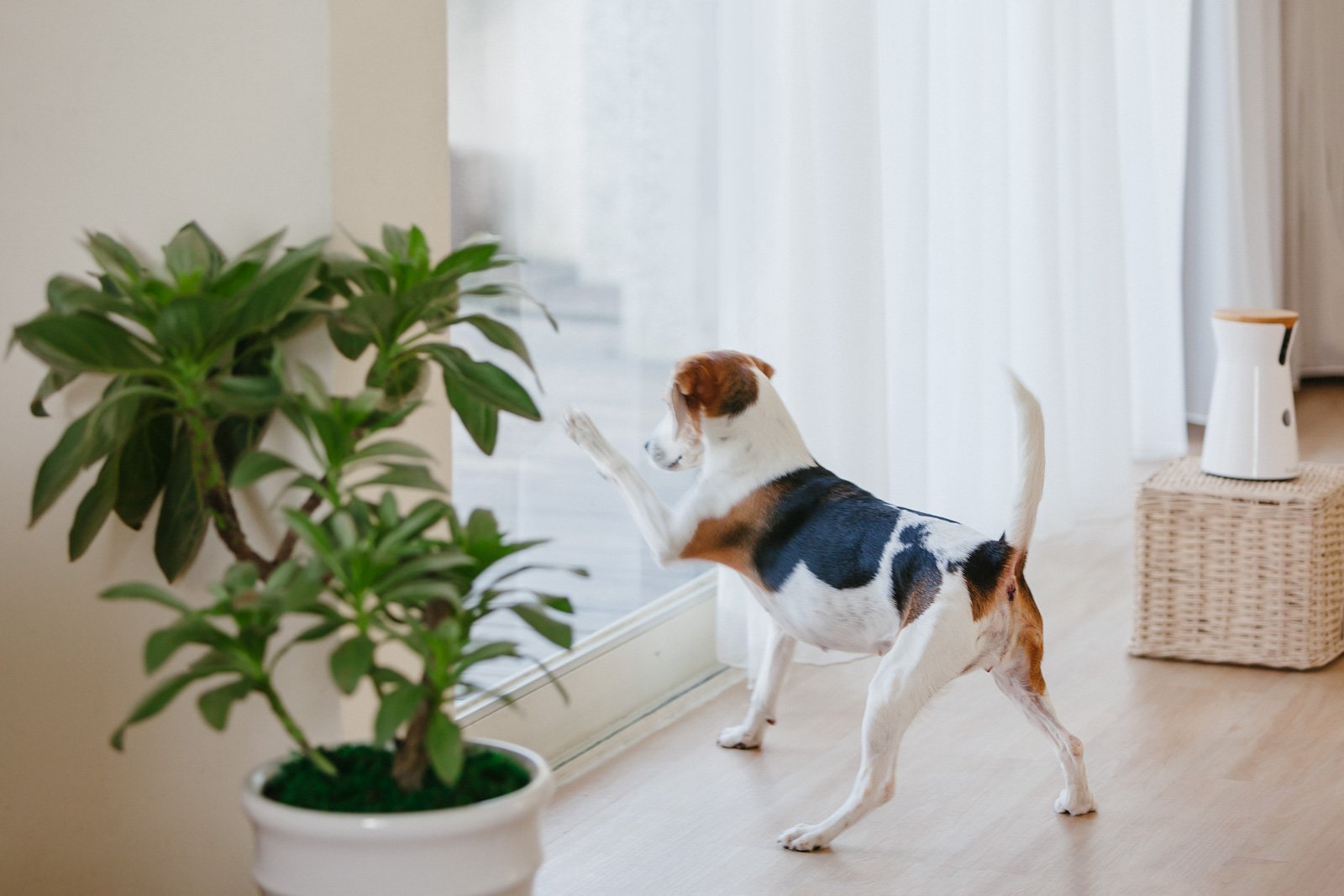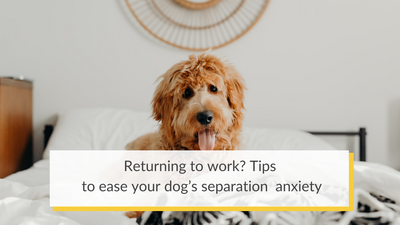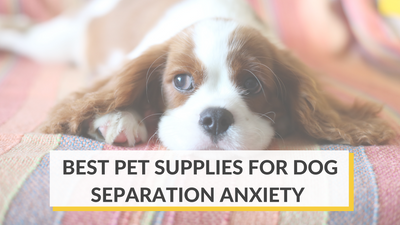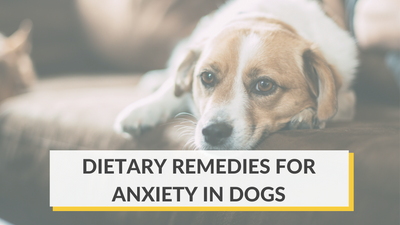In our final chapter, we will look at the possible causes of separation anxiety. By knowing what might cause separation anxiety in the first place, you’ll be prepared to take any preventive measures you can.
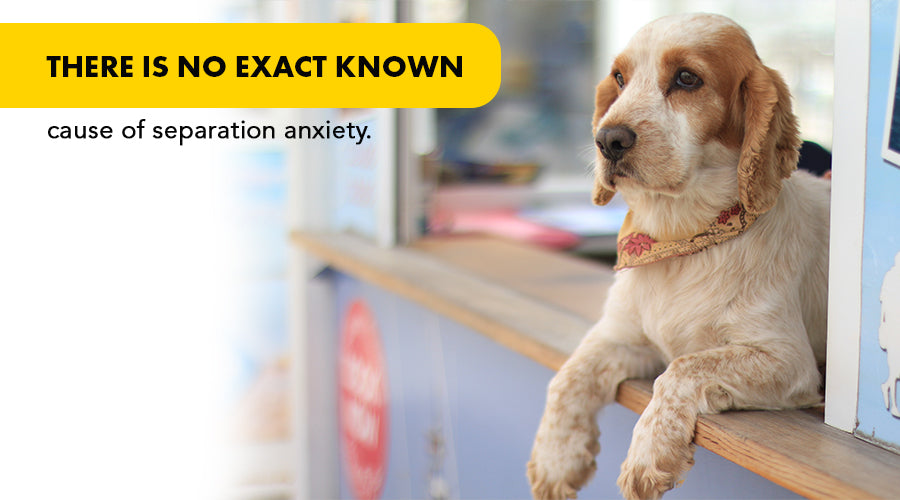
First, there is no exact known cause of separation anxiety. As we discussed in Chapter 4 [interlink back to chapter 4], dog breed and genetics may have some influence. However, environmental factors and parent behavior can have even greater influential power.
Possible Causes of Dog Separation Anxiety
Dogs rely on habit and routine, and change confuses them. Life events happen, and sometimes our worlds get flipped upside down for parents and furbabies. New situations and interrupted routines may trigger separation anxiety in any dog.
Also, dogs are social creatures and are used to people or other animals always being around. If your furbaby has little experience being left alone, it would not be unusual for them to panic in an empty house. In general, here are possible causes of separation anxiety:
- Change of family or residence
- Change in schedule
- Death or absence of a family member or another pet
- Genetic predisposition
- Thunderstorm phobia
- Never learning to be alone
- Being left alone for the first time
- Having experienced a traumatic event
In some ways, our furbabies are not too different than us. Think of times in your life where you have experienced higher levels of stress due to circumstances. Change is uncomfortable for many living creatures and can trigger psychological distress.
Other Causes for Separation Anxiety Symptoms That Are Not Separation Anxiety
Sometimes, separation anxiety is not to blame for less-than-desirable furbaby behavior. Other factors may cause symptoms that mimic separation anxiety such as:
- Incomplete house training
- Territorial urine marking
- Destruction when you’re home — common in puppies
- Boredom

Other issues need to be addressed appropriately. Often, more exercise, stimulation or help from a professional dog trainer can remedy behavioral problems. If you are not sure what’s causing your dog to misbehave, never hesitate to ask your veterinarian for expert advice.
A Happy Pup Means a Happy Household
Our furry friends are not just pets — they’re family. When they feel upset, so do we. Separation anxiety can make it difficult to leave the house for work, school or get-togethers. You may find yourself canceling appointments or other activities to avoid putting your puppy through a stressful experience.
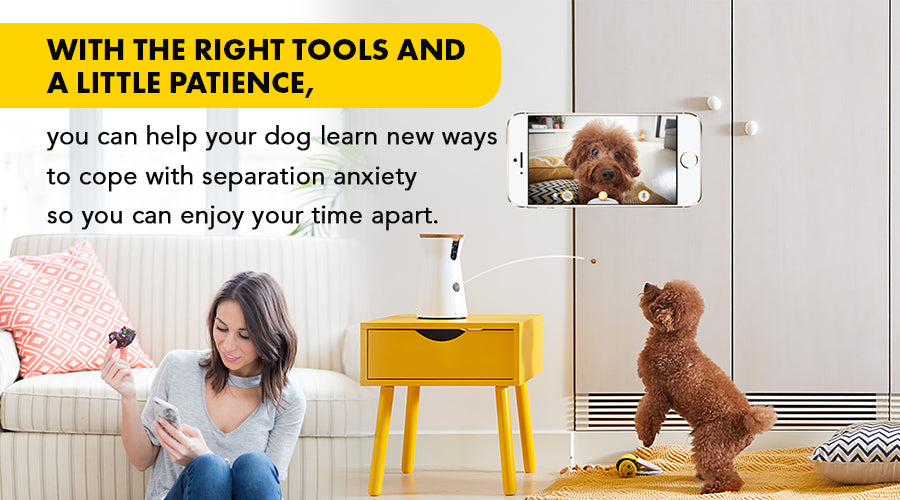
We hope we showed you ways to overcome this common struggle with your furbaby. With the right tools and a little patience, you can help your dog learn new ways to cope with separation anxiety so you can enjoy your time apart.
Sometimes, no matter what you do, there’s nothing more comforting for your puppy than to hear your voice. And we understand if you experience a little separation anxiety yourself. With our Furbo Dog Camera, you can keep an eye on your furbaby and make sure everything is pawsome.
Contact us for more info, or order your Furbo Dog Camera today. Why wait when you can start watching your puppy now? Who knows, you might have the next doggy celebrity living right under your roof, too!
Table of Contents
- Introduction: How to Help a Dog With Separation Anxiety
- Chapter 1: Dog Separation Anxiety Symptoms
- Chapter 2: Medication for Separation Anxiety in Dogs
- Chapter 3: Best Toys for Dogs With Separation Anxiety
- Chapter 4: Dogs Breeds With Separation Anxiety
- Chapter 5: How to Help Puppies With Separation Anxiety
- Chapter 6: How to Train a Dog With Separation Anxiety
- Chapter 7: How Furbo Helps With Separation Anxiety
- Conclusion/Chapter 8: Why Some Dogs Have Separation Anxiety
